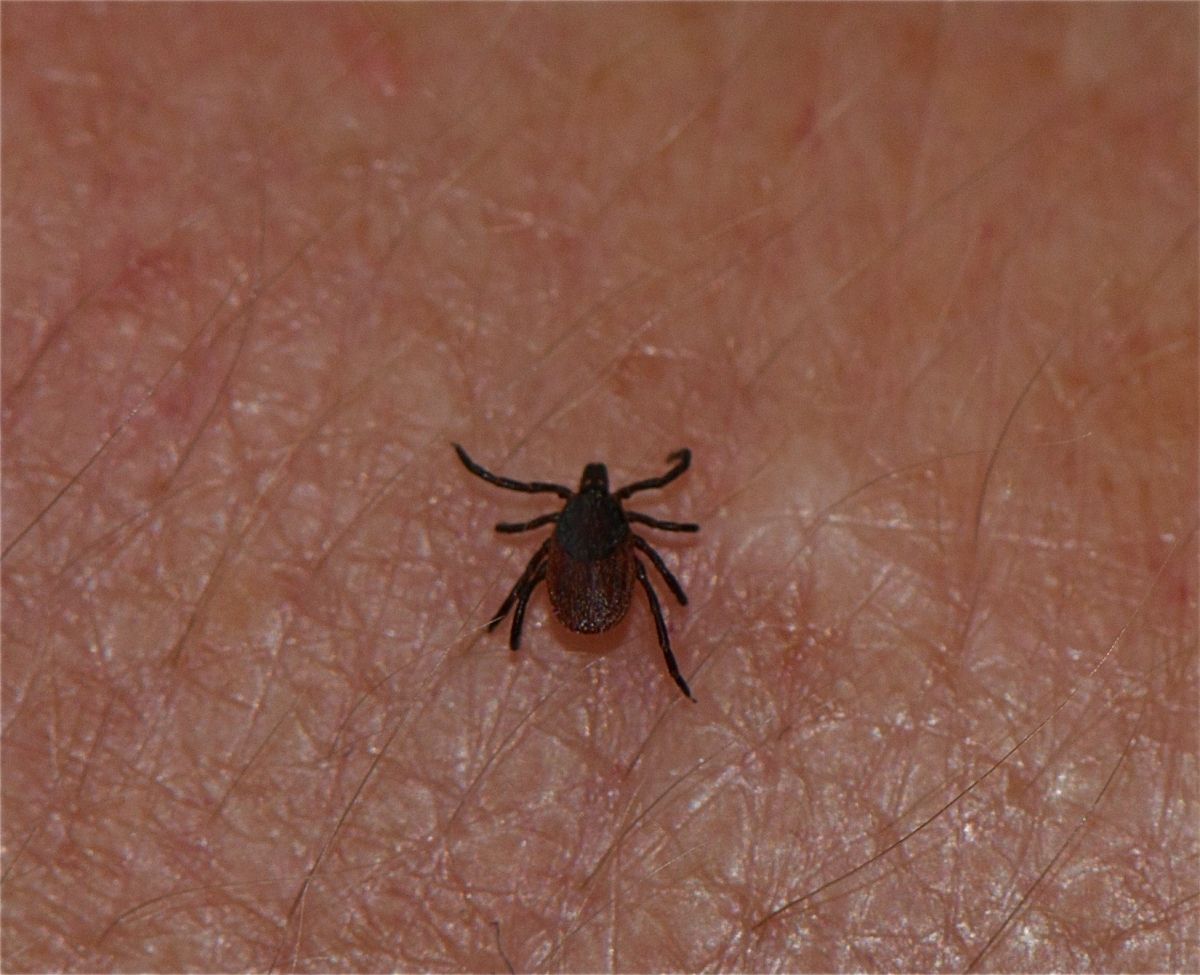
Cases of Lyme disease in the U.K. have reportedly quadrupled in 12 years. Famous faces including fashion designer Tommy Hilfiger's daughter Ally Hilfiger, model Bella Hadid and popstar Avril Lavigne suffer from the infectious disease. John Caudwell, the billionaire founder of phones 4U, was recently diagnosed along with his former wife, son and two daughters.
What is Lyme disease?
Lyme disease is an infection caused by the Borrelia burgdorferi bacteria, which are transmitted to humans via infected ticks—tiny insects which feed on the blood of birds and mammals. According to the World Health Organization, concentrations of the disease occur in forested parts of Asia; Northwestern, Central and Eastern Europe; and the U.S.
What are the symptoms of Lyme disease?
The most distinctive symptom of Lyme disease is a circular rash that develops between three to 30 days after a person is bitten by an infected tick. The rash looks like the bullseye of a dartboard, but diagnosis of the disease is complicated by the fact that around one in three patients will not develop a rash, according to the U.K. National Health Services. Early-stage symptoms are similar to the flu: fatigue, joint pain, headaches and high temperature are common. Lyme disease is diagnosed via blood tests, but these often show up as negative in the early stages of the disease, and some patients never produce enough antibodies for the disease to be detected.
However, problems arise when the disease goes undiagnosed and untreated. The bacteria can infect joints and brain tissue, and lead to more serious problems, including arthritis and meningitis. In extreme cases, the bacteria can infect heart tissue and interfere with the heart's rhythm, which is regulated by electrical signals. This complication, known as Lyme carditis, is very rare, though; it was responsible for just seven U.S. deaths between 1985 and 2013, according to the U.S. Centers for Disease Control and Prevention.
Why are cases increasing in the U.K.?
The Telegraph reported recently that more than 1,100 people in the U.K. were confirmed as having Lyme disease in 2013—the most recent year for which figures are availablere—presenting a fourfold increase since 2001. However, the NHS estimates that there are up to 3,000 new cases in England and Wales each year, with many going undiagnosed.
It may be the case that in the U.K., where Lyme disease is a relatively recent phenomenon, growing awareness of the disease means that more cases are being discovered. Stella Huyshe-Shires, chair of U.K. charity Lyme Disease Action, explains that while the disease has existed in mainland Europe since the 1800s, the first U.K. case wasn't detected until 1977. "That means people here are not really aware of the rash like they are in, say, Germany or France or Poland, and doctors don't know much about the disease because they've been trained by doctors who never met it," says Huyshe-Shires, herself a sufferer of Lyme disease. "Cases are rising because Lyme disease is still spreading through the country. It's present in ticks all over the country but its distribution seems to be very patchy."
Richard Bingham, senior lecturer in biological science at the University of Huddersfield, says that the number of people infected with Lyme disease could be much more than official estimates and that cases of Lyme disease are slipping through the net because British doctors lack awareness of the disease. "There are some doctors who claim that Lyme disease does not exist in the U.K. and that's completely false," says Bingham, whose research focuses on the bacterial cause of Lyme disease. "There are some GPs [general practitioners] who think that you have to have traveled abroad to pick it up and so many GPs will dismiss the patient." The NHS specifies that only around 15 percent of U.K. Lyme disease cases occur when people travel abroad.
The Royal College of General Practitioners (RCGP) does offer an e-learning course for health professionals on how to spot and treat Lyme disease.
Is Lyme disease contagious?
According to Bingham there is "no evidence" for transmission between adult humans, for example via sexual intercourse. Bingham does suggest there is some evidence for placental transmissionwhereby an infected mother might pass on the disease to her unborn child while it is still in the wombbut says further research is required to confirm a link. More likely explanations for family cases of Lyme are circumstantial, he says: a family may have a dog which carries ticks, which consequently infect each member of the family, or all the members of the family may visit the same wooded area together where they could be bitten by the insects.
To avoid infection, adults and children should keep their arms and legs covered when walking in wooded areas or areas where ticks are known to reside. Parent should regularly check their children for ticks, particularly around the hairline, and remove them using forceps or tweezers, not fingers, since using fingers could crush the tick and eject additional saliva containing bacteria into the bloodstream, increasing the risk of a secondary infection.
Uncommon Knowledge
Newsweek is committed to challenging conventional wisdom and finding connections in the search for common ground.
Newsweek is committed to challenging conventional wisdom and finding connections in the search for common ground.
About the writer
Conor is a staff writer for Newsweek covering Africa, with a focus on Nigeria, security and conflict.





